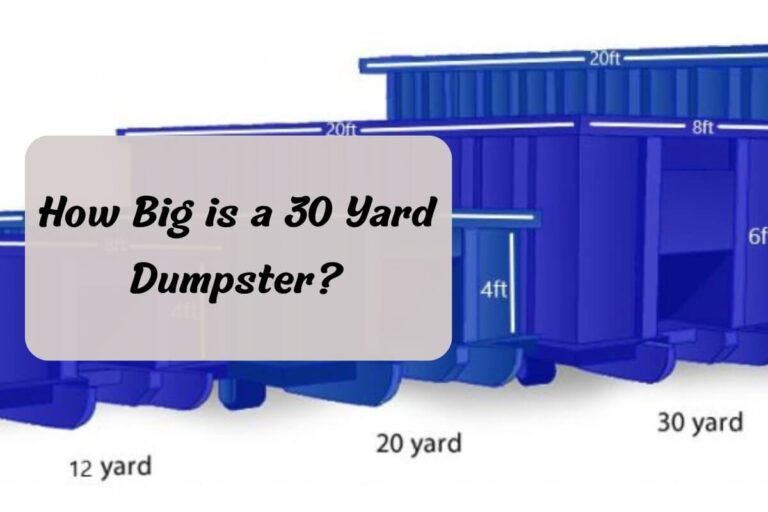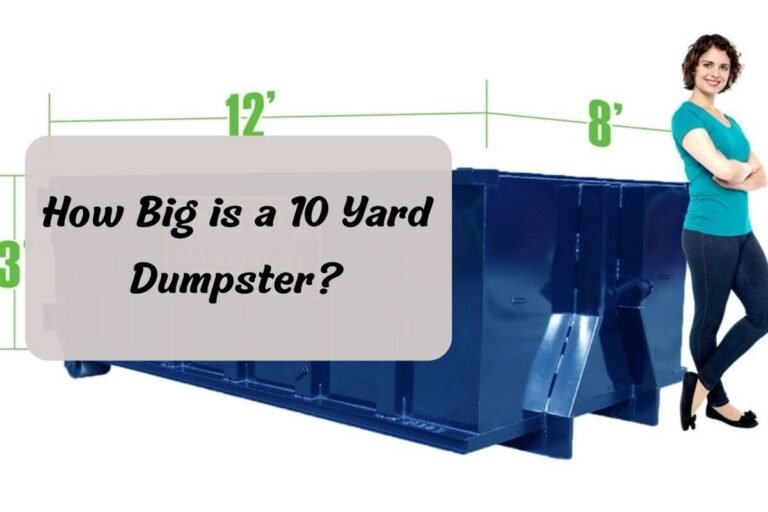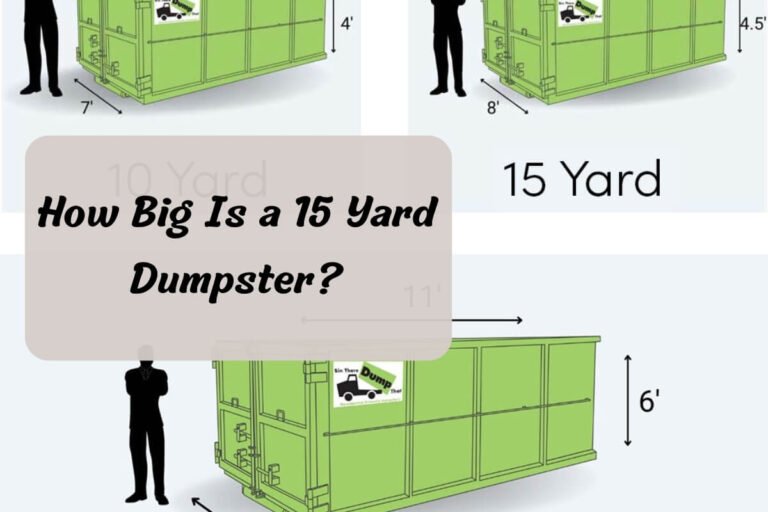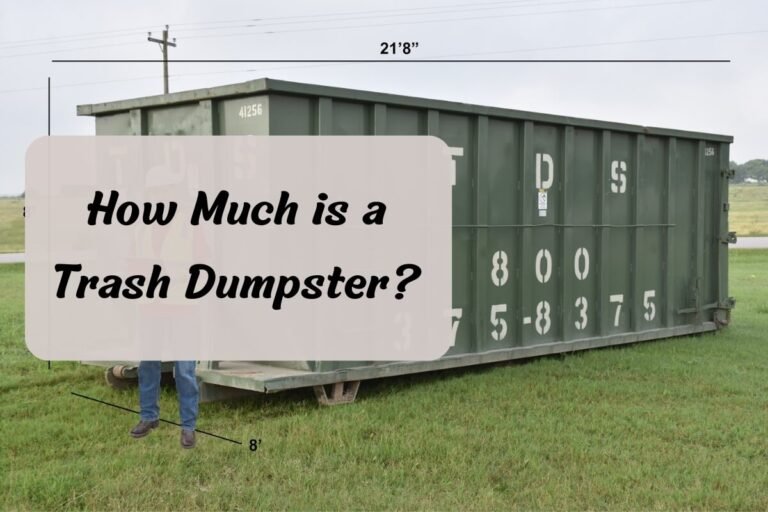Is It Illegal to Use an Apartment Dumpster? The Facts
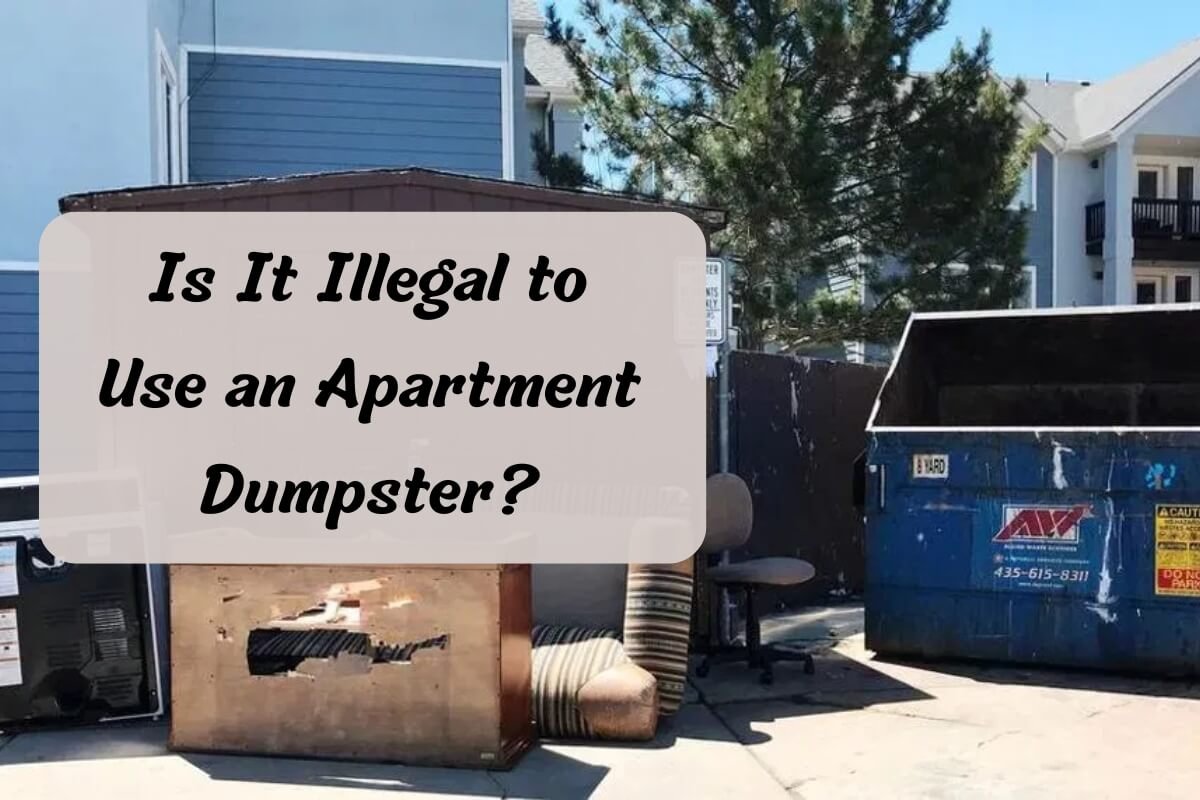
Dealing with trash and bulky waste disposal can be a hassle, especially when living in an apartment complex. It might seem convenient to toss your unwanted items into the complex’s dumpster, but is it legal? The short answer is no – using an apartment dumpster when you’re not a resident is generally considered illegal dumping.
In this comprehensive guide, we’ll explore the legalities surrounding apartment dumpster use, the problems it causes, and the proper ways to dispose of your waste. Buckle up as we analyze this issue, covering everything you need to know.
What Is Illegal Dumping?
Illegal dumping refers to the act of disposing of waste illegally, typically on private or public property without permission. It’s a widespread problem that can have severe environmental and financial consequences.
Most cities and counties treat illegal dumping as a misdemeanor offense, punishable by fines or even jail time in some cases. It’s considered a form of trespassing and littering, which are illegal activities.
Why You Can’t Use Apartment Dumpsters
Apartment dumpsters are exclusively for the use of residents living in that particular complex. As a non-resident, using these dumpsters is illegal for a few key reasons:
- Trespassing: By entering the apartment complex’s premises to access the dumpster, you’re trespassing on private property without permission.
- Violating Apartment Rules: Apartment complexes have strict rules about who can use their amenities, including the dumpsters. Using them without residing there violates these rules.
- Not Paying for the Service: As a non-resident, you’re not contributing to the waste management fees that the apartment complex pays for the dumpster service.
Even if the dumpster seems conveniently located or has extra space, it’s still illegal for you to use it without proper authorization.
Issues Caused by Illegal Apartment Dumpster Use
While it might seem harmless, illegally using an apartment dumpster can lead to various problems for the complex and its residents. Here are some of the most significant issues:
Weight Limits and Overage Fees
Dumpsters have weight restrictions set by the waste management company. If the dumpster becomes overloaded due to illegal dumping, the apartment complex may face hefty overage fees.
These overweight charges can be substantial, depending on the amount of excess waste and the fees set by the landfill or waste facility.
Prohibited and Hazardous Items
Most waste management companies prohibit the disposal of certain items in their dumpsters, such as:
- Hazardous materials (paint, chemicals, batteries)
- Electronics (TVs, computers, etc.)
- Tires
- Bulky items (furniture, appliances)
If illegal dumpers dispose of these prohibited items, the apartment complex may face additional fines or cleanup costs from the waste management company.
Moreover, hazardous waste can pose a severe threat to the environment and public health if not disposed of properly.
Dumpsters Filling Up Too Quickly
When non-residents illegally dump their waste in an apartment dumpster, it can cause the dumpster to fill up much faster than anticipated. This can lead to overflow, creating an unsightly and unsanitary situation for the complex.
Overflowing dumpsters may also attract pests, such as rodents and insects, posing health risks to residents.
Potential Fines or Legal Consequences
As mentioned earlier, illegal dumping is considered a misdemeanor offense in most areas. If caught, individuals could face fines or even potential jail time, depending on the severity of the offense and local laws.
Apartment complexes may also pursue legal action against offenders for trespassing or violating their rules and regulations.
Preventing Illegal Dumping at Apartments
To combat the issue of illegal dumping, apartment communities often employ various strategies:
- Education: Informing residents about proper waste disposal methods and the consequences of illegal dumping can help deter the behavior.
- Signage: Placing clear signage around dumpster areas, warning of the illegality of non-resident use, can act as a deterrent.
- Locks and Fencing: Some complexes secure their dumpster areas with locks or fencing, restricting access to residents only.
- Video Surveillance: Installing security cameras can help identify and prosecute offenders who illegally dump waste.
Residents also play a crucial role in reporting any suspicious or illegal dumping activities to the property management.
Proper Waste Disposal Options
Instead of resorting to illegal dumping, there are numerous proper waste disposal options available:
- Municipal Trash and Recycling Programs: Most cities and towns offer curbside trash and recycling pickup services for residents. Check with your local waste management department for details.
- Hazardous Waste Facilities: Many areas have dedicated facilities that accept hazardous household waste, such as paint, chemicals, and batteries, for proper disposal.
- Donation and Recycling Centers: For large items like furniture or appliances, consider donating them to local charities or recycling centers instead of dumping them.
- Bulk Item Pickup: Some waste management companies offer special pickup services for bulky items, usually for an additional fee. Check with your provider or apartment complex for details.
By utilizing these legitimate waste disposal options, you can avoid the legal and ethical pitfalls of illegal dumping.
Is It Ever Legal to Use Other Dumpsters?
In rare and genuine emergency situations, such as a family member needing assistance with waste disposal, it may be permissible to use a dumpster at an apartment complex or private property with explicit permission from the owner or management.
Get proper authorization beforehand to avoid legal issues or misunderstandings, even in special circumstances.
FAQs about Illegal Apartment Dumpster Use
Can I use the dumpster at an apartment complex if I’m visiting a friend or family member?
No, even if you’re a guest, you are still not a resident and therefore not authorized to use the dumpster.
What if the dumpster is located on public property, like a street?
It doesn’t matter if the dumpster is on public or private property; if it belongs to the apartment complex, only residents are permitted to use it.
Can I be fined for illegal dumping even if I didn’t know it was against the rules?
Yes, ignorance of the law is not a valid defense. It’s your responsibility to ensure you’re disposing of waste legally.
What should I do if I witness someone illegally dumping at an apartment complex?
Report the incident to the property management or local authorities, providing as much detail as possible, such as a description of the person, vehicle, and time of the incident.
Conclusion
While it might seem like a convenient solution, using an apartment dumpster when you’re not a resident is considered illegal dumping. Not only does it violate the complex’s rules and potentially lead to fines or legal consequences, but it also causes numerous issues for the property and its residents.
From exceeding weight limits and disposal of prohibited items to unsightly overflow and potential environmental hazards, illegal dumping can quickly become a costly and problematic situation for all involved.
Understanding the legalities and consequences helps us dispose of waste properly through legitimate channels like municipal trash and recycling programs, hazardous waste facilities, and donation or recycling centers.
Remember, respecting private property and following waste disposal regulations isn’t just a matter of legality – it’s also a matter of being a responsible member of our community and protecting our shared environment.

